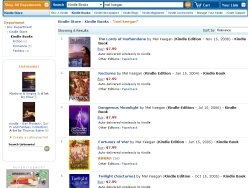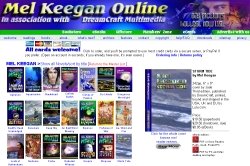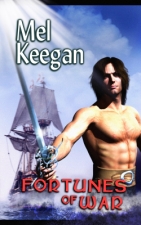
I guess, spending the first twelve years of your life celebrating your birthday while you scrape candle wax off the cement in the yard, and counting your fireworks, hoarding them against the big day -- November 5th -- makes so indelible an impression on a kid's brain that, 37 years after leaving the north, I am still haunted by thoughts and sounds, smells and impressions, of a time ... and a place ... that don't even exist anymore...

Small town England has been vanishing steadily as the cities conquer the landscape. Three or four villages collide with two towns and ... you've got a small city that swiftly expands. It was happening when I was a kid, and that was a long, long time ago. I remember the new housing estates (subdivisions, if you prefer) going up on every parcel of land that wasn't actually under the plow. But even so, small town England was never far from Nature, and when the seasons turned, when the land itself began to close down its branch offices in preparation for suspending business for the winter, you -- the human, even if you were only eight years old -- felt it...

In fact, you felt it keenly. All at once, you were looking for the biggest turnip or pumpkin you could find, to make a lantern (turnip lanterns were much more common in our part of the world; in those days, and in that place, pumpkins were close to unknown. I don't think I'd even seen one before landing in Australia in '71), and you were wearing your heavy coat, and the scarf, and the gloves. The days were shorter, not to mention colder. The shops were lit up by four in the afternoon -- and the display windows were full of fireworks...

Now, in almost every part of the world these days, fireworks are illegal. But in those days ... kids stood in line at the counter at the magazine shop to buy them ... 6d for this one, 9d for that one, and the others were four for a shilling. They had a fascination about them that belonged to this exact time of the year -- and also to this place. The US, Canada, Aus, Europe -- nowhere else in the world associates the smell of cordite, brightly-colored little cardboard cylinders, and the smell of raw turnips, and sizzling sausages, and woodsmoke, and cold, misty evenings with the first stars beginning to show...

Halloween and Bonfire night went hand in hand. The shops were full of fireworks for a couple of weeks before Guy Fawkes's Night, so one celebration overlaid itself on the other -- which was just as well, because Halloween itself was not the three-ringed circus it is today. In those days (and in that place) it was an excuse for a party for the adults, and a major romp for the kids, who would dress up as witches and goblins ... in home-made costumes, because the night was not (yet) commercialized, you didn't buy this stuff ... and have a turnip lantern bash in the back yard, with a sausage sizzle on the side. Talk about fun...

Winter was coming in, and in the back of every kid's mind was SNOW, and CHRISTMAS, and TIME TO GET OUT THE SLED (which in our part of the world was known as a sledge). Autumn, and Halloween, is a time every little northern hemisphere kid has to love, because you can feel the world changing, and you know Christmas is close. And for us, in a few days, on November 5th, there was going to be a ten-foot-high bonfire on the village green, where people would bring their fireworks and let them off, and it would be GREAT. There was no giant sky-show, as you see today (though, full marks go to the local County Council -- think city hall -- for organizing the biggest pyrotechnics show in the region, to replace the big bonfire and "b.y.o. fireworks," which were discontinued only a few years ago...

I feel myself privileged to have been there for the real thing: dwarfed by the bonfire, eyes watering on the woodsmoke, full of sausages and onions, watching my father set off rockets and Roman candles and Catherine wheels and what have you ... while forty other kids were doing the same. Guy Fawkes's night -- bonfire night -- was sheer magic, and also the day after my birthday ... made the celebrations go on and on, and you had the time of your life. Of course, it all began with Halloween, in a time and place where "Trick of Treat" was a phrase which was heard only in American movies. We had no idea what that was all about, couldn't make head or tail of it...

We lived in a particularly "haunted" part of the country, at a time when people were a lot more "sensitive" to the other, paranormal side of life. The past was all around you, in the form of streets that had been there since the time of Dickens and churches that looked like something right out of the Middle Ages. And some of them had great stories attached. Like the one above. It's ruined now ... vandals burned it to a shell. They also tried to burn the tree that stands in the foreground, but the tree ... wouldn't burn. Locally, it's been known as the "Witch Tree" for longer than anyone can tell. The legend says, a young woman accused of being a witch was been pursued by a rampaging band of Christians in a murdering mood. She fled to the church to beg for sanctuary, protection, but the priest denied her. To prevent the mob from burning her, she turned herself into a tree. And that tree will not burn. Eventually, after the church itself was abandoned, young vandals burned it, but still, the tree wouldn't burn, though God's House went up like a torch...

The place and time time seemed "haunted" by otherwhens and otherwheres. I was always a little bit psychic (not very; that, I left to my mother, who inherited it from her Irish grandmother), and I suppose I was half-aware of the other times, places and people that seem to come in close at Halloween -- if you can divorce yourself from the commercialized American kiddy-fest and remember the age-old night of Samhaine. The Celtic tradition, several thousand years old now, holds that on this night the "veil between the worlds" is so thin, it barely exists at all. The dead can and do walk; you can talk to them, be visited by departed loved ones -- and also by those who might have a grudge against you, so beware! This is the essence of Halloween, and when I was a kid, one had this half-awareness of it, which was the product of growing up in a very big, very old Irish community where the Catholicism was a paper-thin veneer laid over traditions which are so old, they were around when Christ was still swinging a hammer...

So, this was Halloween, for me: standing in line to buy fireworks, with the nose full of the sharp smell of gunpowder ... carving out a turnip lantern, inviting friends over for a bash in the backyard ... collecting twigs and sticks in the ancient church yard that dated back to the Napoleonic Wars, to make a backyard bonfire ... feeling the crispness in the air, smelling the woodsmoke of the bonfires which were bring lit all over the countryside as the "hedgers and ditchers" cleared out the byways before the snows came ... wondering if I was going to get for my birthday what I really wanted ... wondering when the first snow would come ... making some kind of costume to wear for the Halloween party ... all with the thoughts of Christmas in the back of the mind, and the much clearer thought that the 4th was my own big day (good golly, I'm in double figures this year!), and then it would be off to the village for the massive bonfire, and let off the fireworks I'd spent my pocket money on for the last couple of weeks...
To this day, chilly mornings, skeletal trees, mist curling in the shadows, the smell of woodsmoke (albeit, now, from the chiminea), the smell of sausages and onions sizzling, the whoosh!! of small fireworks, the smell of raw turnips and candle wax and toffee apples (think candy apples) -- it all brings back memories of a time, a place, which I don't suppose exist outside my own mind. Right now, we're making preparations for having miscellaneous kids knock on the door come twilight, yelling "trick or treat" and expecting candy ... only the pre-wrapped variety and no fruit, because in our lamentable era, one can't trust people not to put poison or razor blades in the mandarin oranges and home-made goodies. Kids aren't safe, knocking on doors ... some of them don't even dress up in costume, they just knock, yell "trick or treat" and expect candy ... and almost none of them know anything about the essence of Halloween -- Samhaine, when the earth is settling down to hibernate and the veil grows thin, and the dead walk.
Happy Halloween, 2008
MK













































